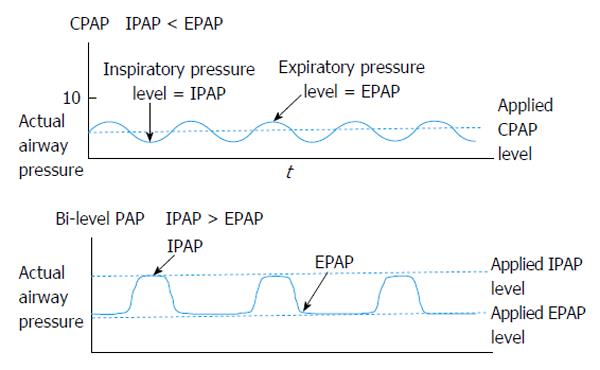Mechanism of action of continuous positive airway pressure therapy iv
Table of Contents
Table of Contents
Continuous positive airway pressure (CPAP) therapy has been one of the most effective treatments for sleep apnea. Despite its efficiency, this therapy comes with a few side effects that could hinder some patients’ adherence. In this article, we’ll dive deeper into CPAP therapy’s side effects and how to manage them.
Pain Points of CPAP Therapy
Patients who undergo CPAP therapy are likely to experience some discomfort during the treatment, including dry mouth, nasal congestion, and skin irritation. These side effects could cause some patients to discontinue treatment prematurely, which is particularly dangerous for those with severe sleep apnea. Moreover, some of these side effects could exacerbate pre-existing conditions such as acne or allergies.
What is the Target of CPAP Therapy Side Effects?
The target of CPAP therapy is to reduce airway obstruction that could lead to oxygen desaturation, respiratory stress, and ultimately, cardiovascular complications. However, some patients could experience adverse events associated with CPAP therapy, which could make it challenging to tolerate. These side effects could range from mild to severe and require proper management to ensure patients get the full benefit of CPAP therapy.
Summary of CPAP Therapy Side Effects
CPAP therapy is a revolutionary treatment for sleep apnea that reduces the risk of cardiovascular complications and improves patients’ quality of life. However, some CPAP therapy side effects could hinder patients’ adherence to the treatment, including dry mouth, nasal congestion, skin irritation, and more. It is important to note that these side effects are manageable and that patients should seek help from their healthcare provider to alleviate discomfort.
Managing CPAP Therapy Side Effects
Persistent dry mouth is one of the most common CPAP therapy side effects, and it could lead to dental problems. Patients could alleviate this discomfort by hydrating regularly, changing the humidifier settings, or using a chin strap. Moreover, nasal congestion patients could switch to a different mask or use a saline solution or decongestant nasal spray. Patients experiencing skin irritation could use a hydrocortisone cream or switch to a different mask or nasal pillow.
CPAP Therapy Side Effects and Cardiovascular Complications
Although CPAP therapy reduces the risk of cardiovascular complications associated with sleep apnea, some CPAP therapy side effects could cause additional stress on the cardiovascular system. For instance, CPAP therapy could increase the intrathoracic pressure, which could lead to an increased venous return and decreased cardiac output in some patients. This could result in complications such as decreased tissue perfusion and cardiac arrhythmias. In some instances, CPAP therapy could require more aggressive treatment to avoid cardiovascular complications.
Humidification and CPAP Therapy
Humidification is essential in CPAP therapy as it reduces side effects such as dry mouth and nasal congestion. A heated humidifier could prevent the nasal mucosa from drying out and mobilize mucus secretions. However, some patients could experience persistent humidification issues, which could lead to discomfort of a different nature, such as excessive moisture buildup in masks and tubing.
Frequently Asked Questions about CPAP Therapy Side Effects
Q: Are CPAP therapy side effects permanent?
A: No, CPAP therapy side effects are temporary and manageable. You may experience some discomfort during the early stages of treatment, but it should subside as your body adjusts to therapy.
Q: How can I prevent nasal congestion during CPAP therapy?
A: You could alleviate nasal congestion by using a saline solution or decongestant nasal spray, switching to a nasal pillow or full-face mask, and keeping your masks clean.
Q: Can CPAP therapy cause high blood pressure?
A: CPAP therapy does not cause high blood pressure. Instead, it reduces the risk of cardiovascular complications in patients with sleep apnea.
Q: Is weight gain a side effect of CPAP therapy?
A: Weight gain is not a side effect of CPAP therapy. However, lack of adherence to CPAP therapy could lead to weight gain and associated complications.
Conclusion of Continuous Positive Airway Pressure Therapy Side Effects
Continuous positive airway pressure therapy side effects are manageable and could decrease adherence to this effective treatment. Patients who experience discomfort during CPAP therapy should work closely with their healthcare provider to find the best ways to manage the side effects and continue treatment without interruption. A proactive approach to managing CPAP therapy side effects could significantly improve patients’ quality of life and reduce the risk of adverse outcomes associated with sleep apnea.
Gallery
Continuous Positive Airway Pressure Therapy | Nursing Information

Photo Credit by: bing.com / pressure continuous positive airway therapy
Mechanism Of Action Of Continuous Positive Airway Pressure Therapy IV

Photo Credit by: bing.com / airway pressure positive continuous therapy iv
Different Types Of Positive Airway Pressure Devices

Photo Credit by: bing.com / pressure positive airway continuous cpap devices types machine breathing market bipap different
Continuous Positive Airway Pressure | Treating Sleep Apnea - YouTube

Photo Credit by: bing.com / airway positive pressure continuous
Positive Airway Pressure Therapy For Heart Failure

Photo Credit by: bing.com / pressure airway positive 1175 wjc continuous therapy i11 v6 bi level


